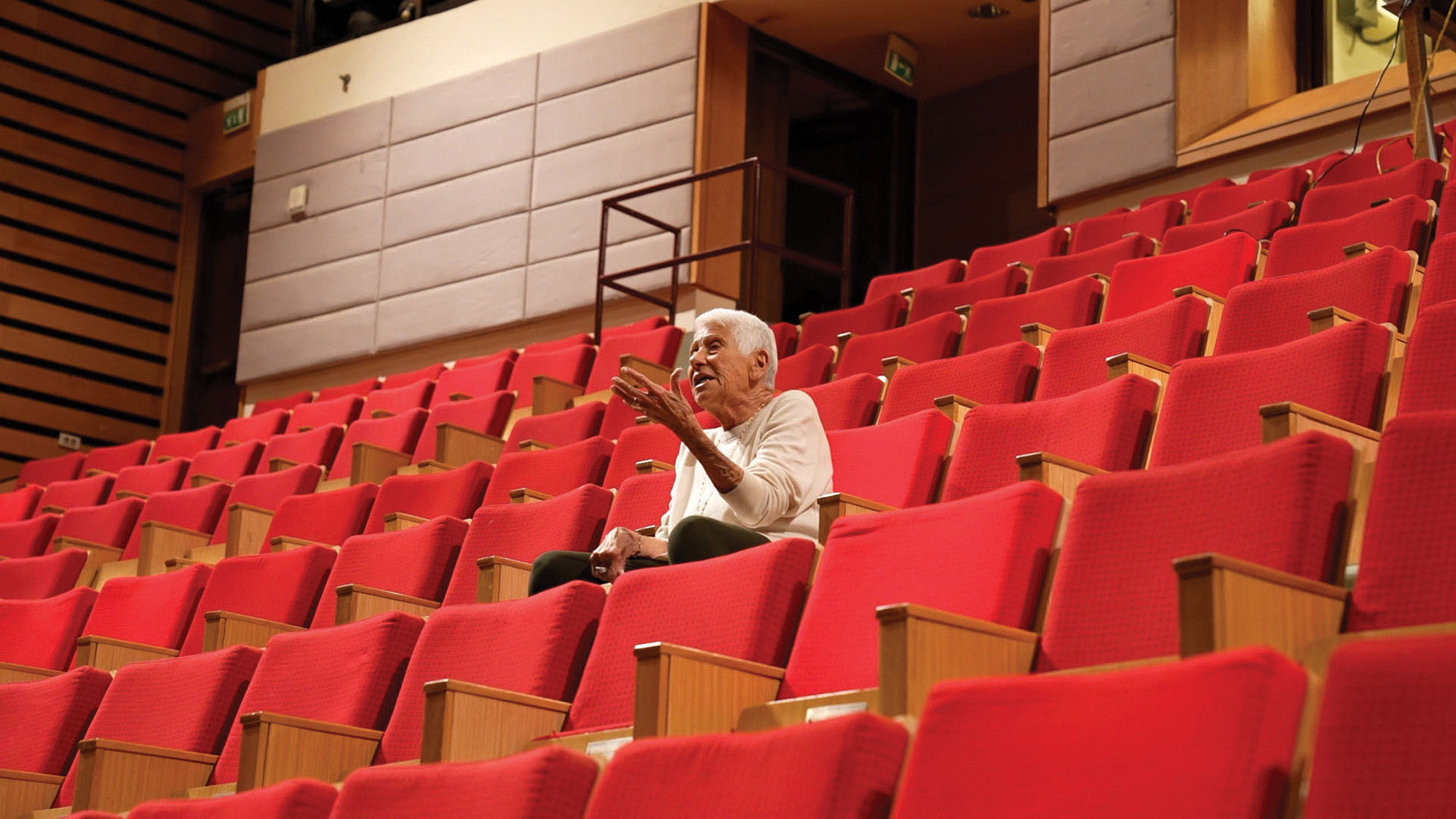The year was 1964 when alumna Leila Saad, soon to be Miss Egypt, first fell in love with theatre and launched an acting career that has lasted 61 years (and counting)
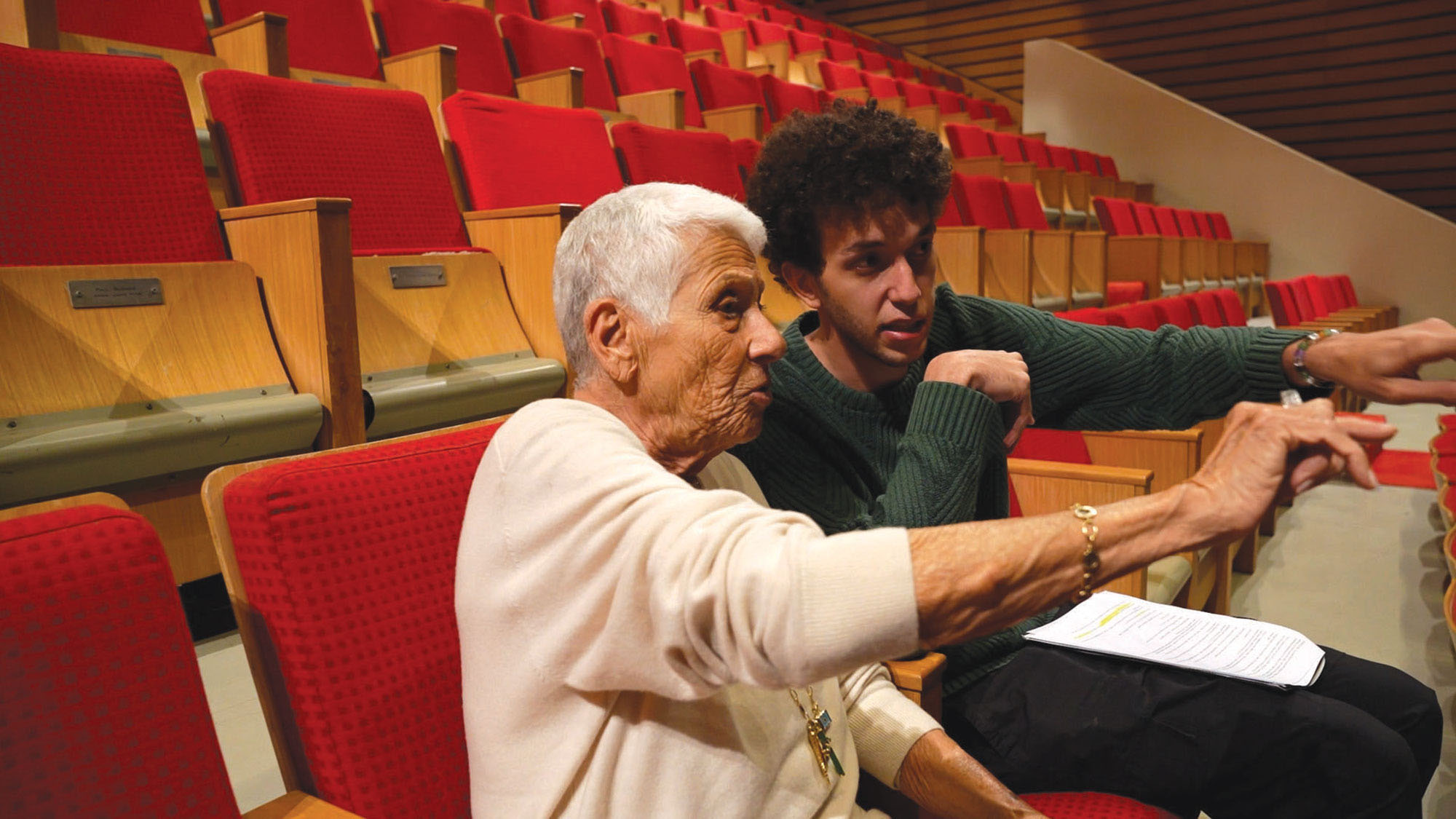
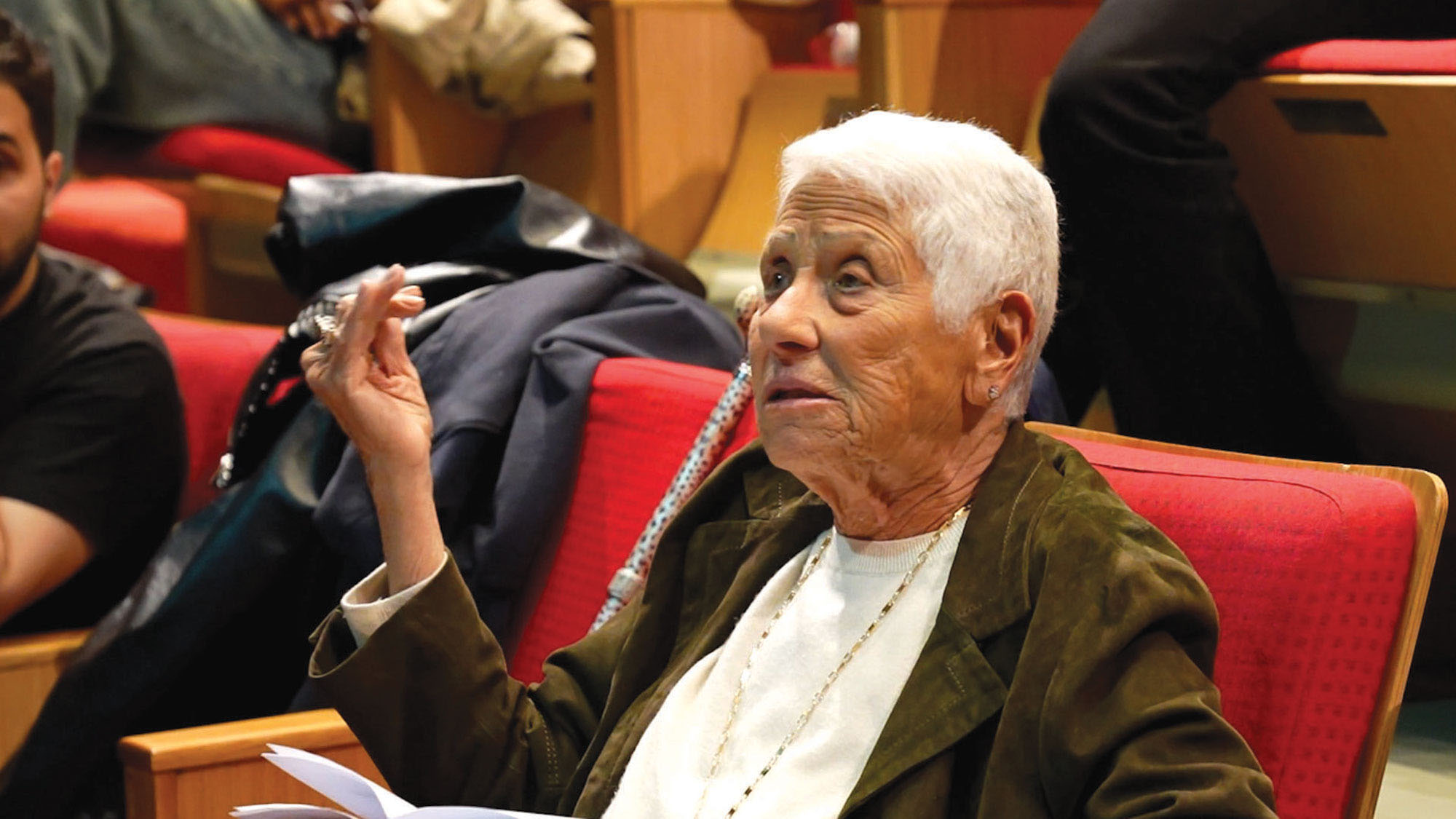
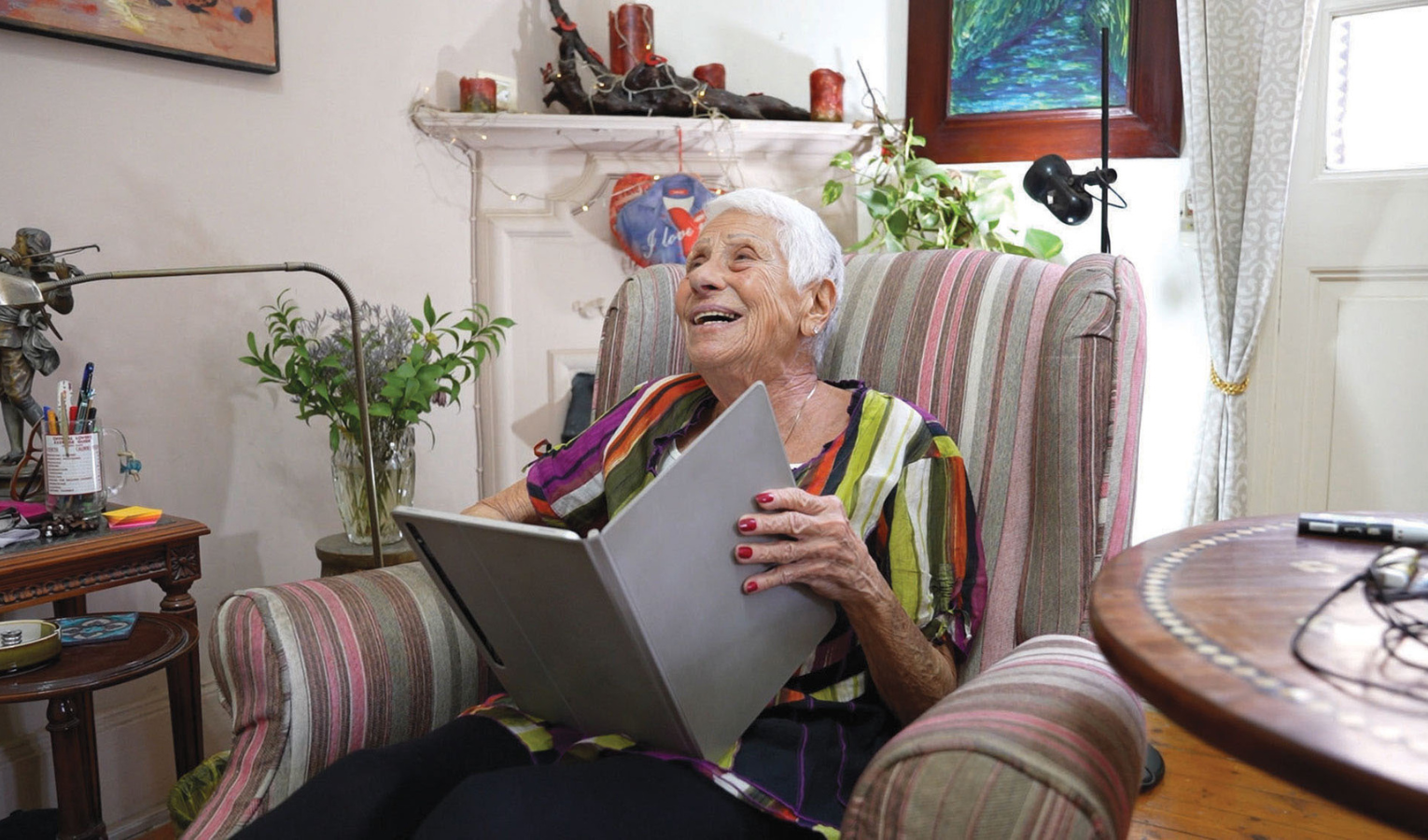
A tall wooden door guards the Heliopolis apartment where, on a Saturday afternoon, Leila Saad ’66 checks emails on her iPad and prepares for a day of work. Amid the funky statues, potted plants and fairy lights that furnish her apartment, Saad fills the space with a smile, her white hair and pixie cut accentuating her vibrant energy.
She insists on coffee — for her, karkade — and an hourlong chat before beginning the interview.
Donning black leggings, a colorful blouse and a cross necklace alluding to her Coptic roots, Saad is adamant that she would never leave Heliopolis as she gives us a tour of her old Cairo home. “God will take care of the destination and the rest,” insists Saad, relying on her faith in the present as she has during much of her eventful life.
The octogenarian’s career is going strong — she has an acting job later today, and she recently wrapped up a project she directed for AUC, The Importance of Being Earnest.
Church bells ring in the vicinity as she takes a seat on her balcony, a private garden filled with greenery. The first question — “Who is Leila Saad?” — prompts the actress to spring to life, her voice heavy and animated with conviction: “Leila Saad is an 88-year-old who is passionate about theatre and has been on a journey doing theatre for 61 years, since she was cast in a 1964 AUC rendition of Oklahoma in Ewart Memorial Hall.”
She laughs that her first role caused three music directors to quit after Bob Harper, the casting director, insisted that she sing in the play (“I can’t sing,” says Saad). Thus began a love for theatre, which has since colored every aspect of Saad’s life.
A New Life in North America
Soon after Oklahoma, Saad opened up a cafeteria called Greedee’s in the basement of the newly acquired Greek Campus, where she started meeting with AUC’s theatre group: “There was no theatre department at the time, but there was something called the Maskers Club,” she reminisces. “I have the best memories with them.”
Saad was majoring in English literature at first, but following Harper’s guidance, she soon received a full scholarship to study theatre at the University of Southern California (USC) — an offer she couldn’t refuse. She knew then she had to follow her dreams, even though she was sad to leave AUC in 1966.
“There was no theatre department at the time, but there was something called the Maskers Club. I have the best memories with them.”
“I was scared and nervous and hesitant, but I went. I took my suitcase and $11 because during Nasser’s rule, we were only allowed 5 Egyptian pounds (equivalent to $11 at the time),” says Saad. “I didn’t know anybody except a friend of mine whom I knew from Cairo and who happened to be studying television and film, and we lived together as roommates.”
Saad’s journey in the United States was one that spanned decades: She loved USC but disliked California, so she moved to Oregon, where she joined a graduate program in the theatre department and Middle East Studies Center at Portland State University.
After a few years, Saad relocated again. “I was thriving in Portland, but it was time to move to the East Coast where there was more opportunity in theatre,” Saad says. She worked at Boston University (BU) and joined a professional theatre company in the city, where she remained for 25 years.
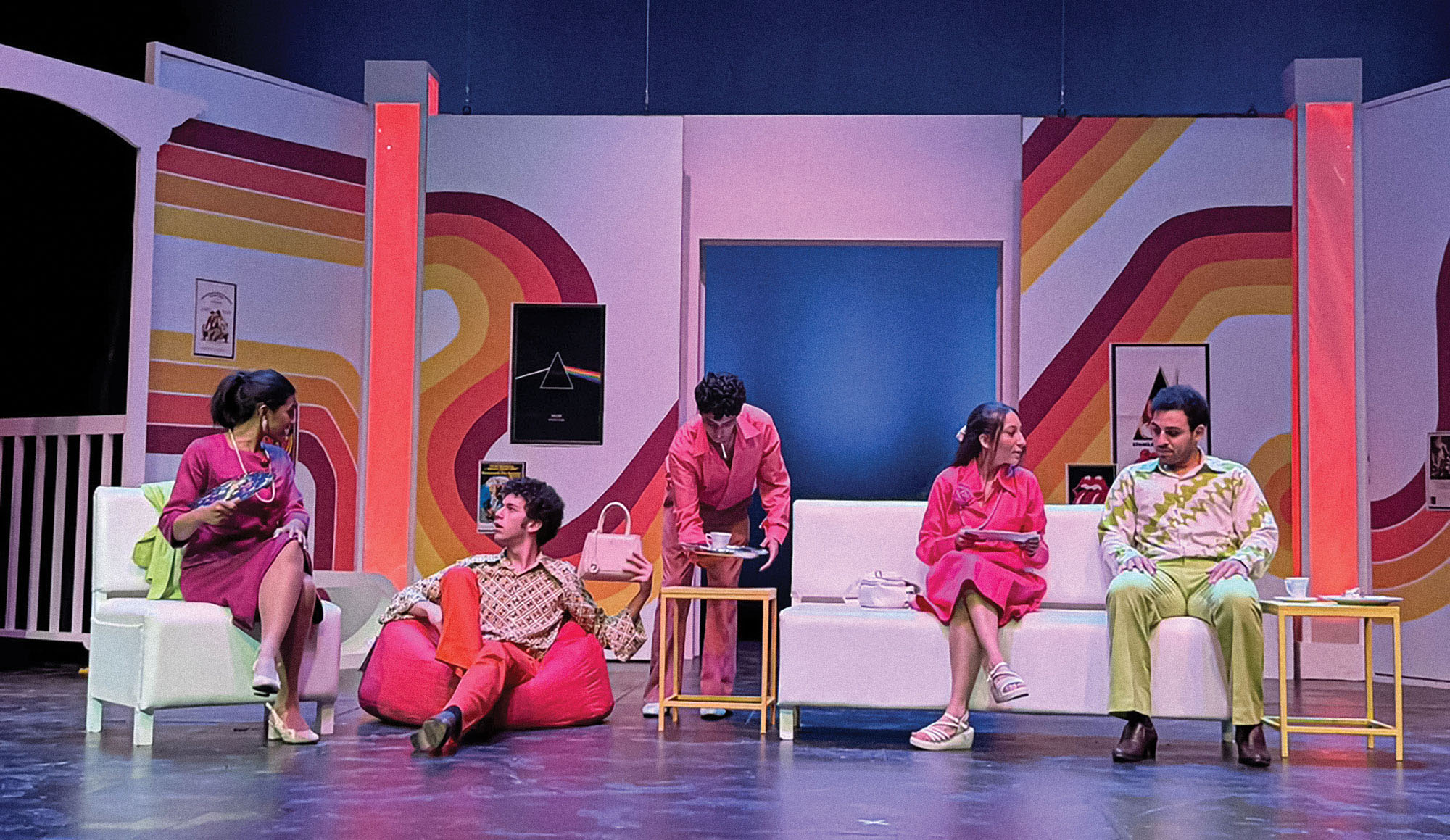
Leila Saad ’66 came back to AUC to direct the student production of "The Importance of Being Earnest"
‘The Actor is Not a Pawn’
A long lighter sits atop a pack of Marlboros on the wooden table beside Saad. On her other side, a light breeze ruffles the tissues on a glass table. We’re back in Heliopolis, and Saad is speaking about her latest job at AUC, a directing position for The Importance of Being Earnest, which was performed by students in May 2025.
When Saad was chosen to direct the AUC production, she was hesitant because she hadn’t worked with this age group in a very long time. “I met a lot of resistance from the cast because they are not used to my non-traditional directing style. They wanted me to dictate every move, every step, how to say lines and when to move.”
Instead, Saad entrusts her actors with the freedom to create for themselves, believing that this prompts them to gain ownership and responsibility over the project. “The actor is not a pawn to be moved around by a director; the actor is a partner in the creative process,” she says. “That way, you get a truthful, fun production, and the actors become 110% committed.”
“The actor is not a pawn to be moved around by a director; the actor is a partner in the creative process.”
Her voice jumps, “It’s theirs! They want it to be the best it can be because it’s their project.”
Like Saad’s philosophy on directing, her advice on failure also comes with dramatic flair. “They all started very scared,” Saad says of the actors, karkade in hand. “‘What if I fall?’” asks Leila, emphasizing each word in the air with a pointed red-polished finger. “This is what each one said. And I said,” — the red nail is now pointed at Saad — “‘Oh darling, but what if you fly?’”
"'What if I fall?' This is what each one said. And I said, 'Oh darling, but what if you fly?'"
A smile sneaks onto Saad’s face as her words linger. In time, the actors began to trust Saad fully, and in the final production, Saad says the actors did fly.
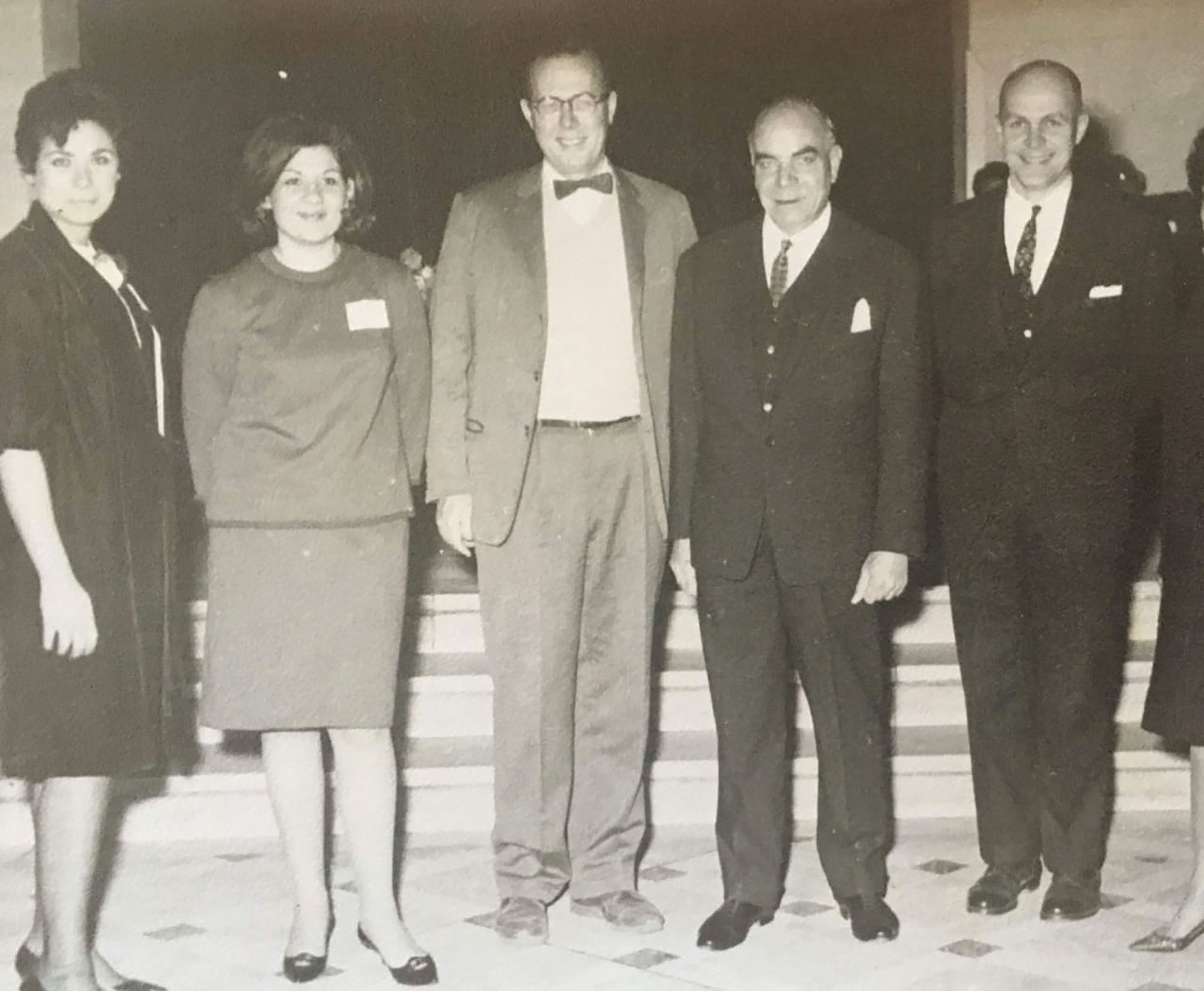
Thanking Leila Saad ’66 for establishing the Greedee’s cafeteria on the Greek Campus in the 1960s: Saad with Andrée Cassabgui from the Office of Student Affairs, Dean of Students Frank Blanning, Vice President Ahmed Abdel Ghaffar Saleh AUC President Thomas Bartlett
More Than a Giraffe
Saad describes her life’s journey across the world as humbling but exhilarating. “I grew; I was no longer the spoiled brat. In Egypt, I was an only child. I was Miss Egypt,” — she had indeed won the national pageant, which she had entered on a dare — “I was married, and I was the Queen of Sheba. But abroad, I was a nobody,” she says.
The journey was extremely tough, Saad recalls, until she carved a prominent role for herself. “I ended up assistant dean of students at BU. I acted professionally with a theatre company and took the show to St. Petersburg, Russia,” she says.
Saad emphasizes her trajectory of growth, saying, “Ana namlah mashiya ‘ala el ard, w badein ba’et zarafa, ba’et fo’ el zarafa,” — in English, “I was an ant walking on the ground, and then I became a giraffe, and then I surpassed the giraffe.”
“Theatre is the only medium that I am comfortable with, and I do it well. I enjoy directing, acting and teaching. It’s my life.”
She also recalls participating in “everything,” from the civil rights movement to Vietnam. “The 1960s were a time of rebellion, rebels with a cause. We all had causes. I did many shows relevant to these movements and to raise funds,” she says.
In 2009, she started a theatre company called Act Theatre Group, which is still running strong today.
Looking back, Saad remembers the frustration and the tears, but she also remembers the smiles, the laughter and the joy. “As I sit here and go through the memories, I feel that I’m so blessed. There is nothing that I need or want.”
The year is 1964, and a young Leila Saad just found her calling at AUC. In 61 years, she will look back on this moment and say, “Theatre is the only medium that I am comfortable with, and I do it well. I enjoy directing, acting and teaching. It’s my life.”
She will be directing plays for AUC, among other projects, and she will love her life. “I’m surrounded by people who give me full support, who really believe that, at 88, I still have it.”


